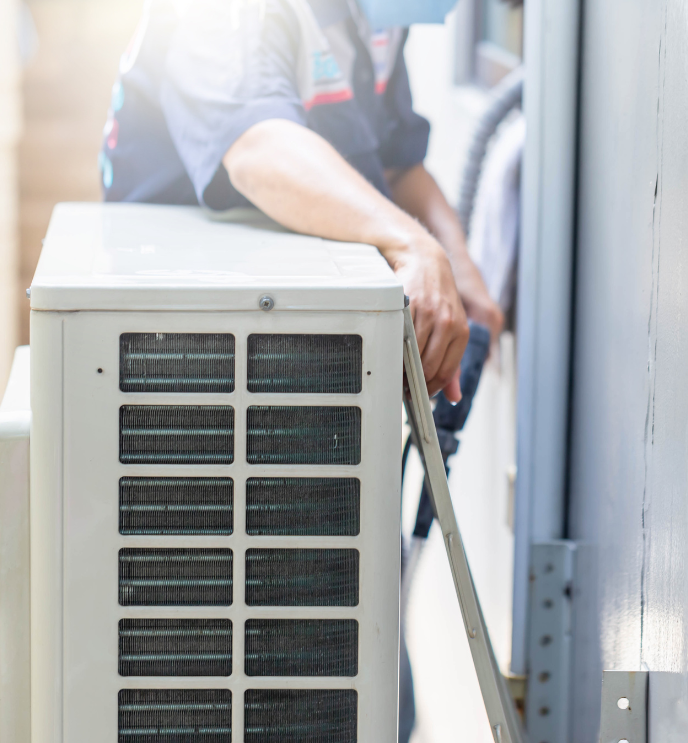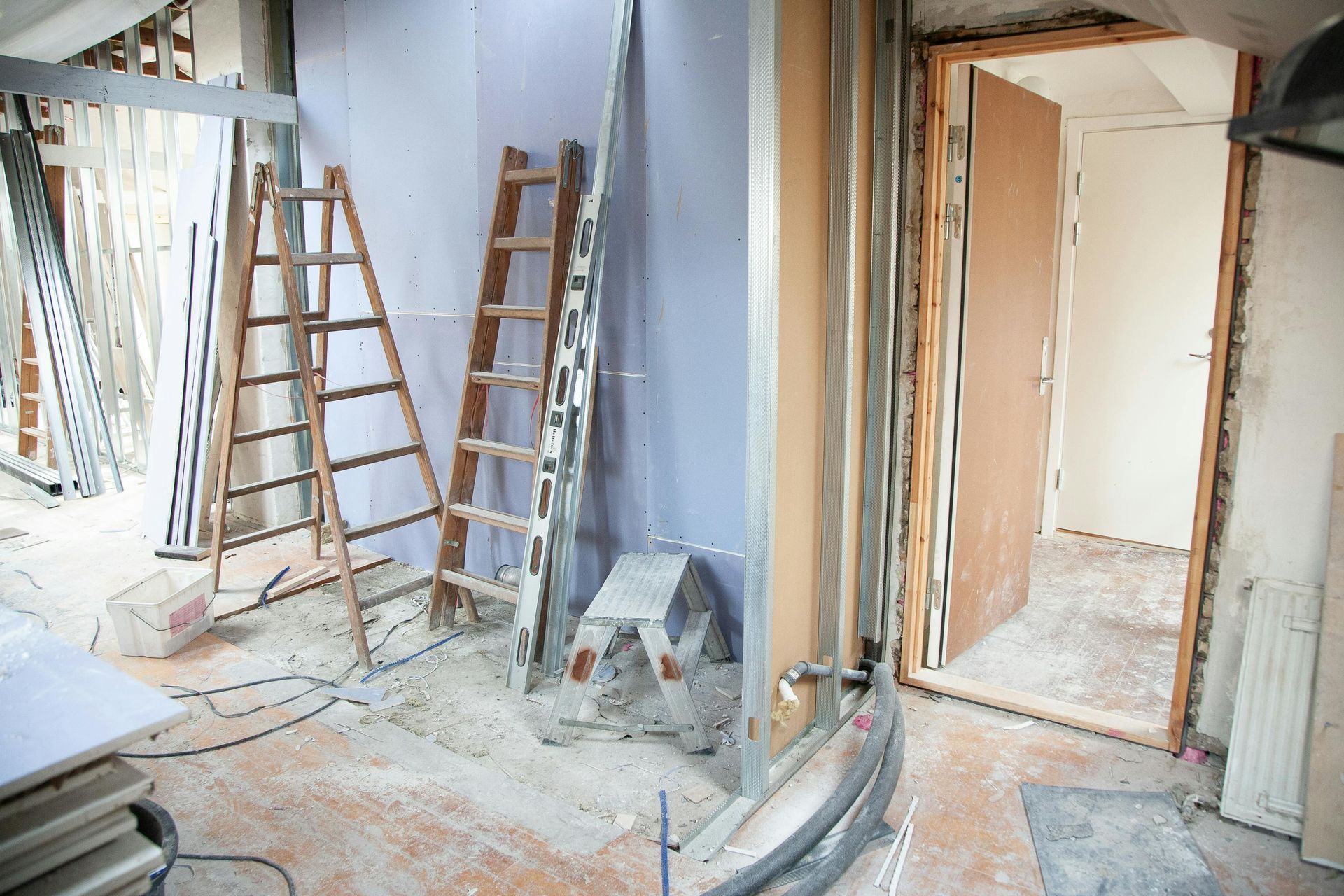Types of Contractors We Serve
Jonathan Behr
Owner of Contractor Insurance Pros by Behr Insurance Services
Index
Contact Us
Phone
Location
Simi Valley, CA 93065
The Woodlands, TX 77382
Katy, TX 77494
In today's world, the importance of maintaining good air quality cannot be overstated. With increasing concerns about environmental health, air quality specialists play a crucial role in assessing and improving air quality across various settings. However, like any profession, air quality specialists face unique risks that necessitate specialized
insurance coverage. This article delves into the intricacies of air quality specialist insurance, exploring its significance, coverage options, and tips for selecting the right policy.
Understanding the Role of Air Quality Specialists
Air quality specialists are professionals dedicated to monitoring and improving air quality in various environments, including residential, commercial, and industrial settings. Their work often involves assessing pollutants, conducting tests, and providing recommendations for air quality improvements. Given the complexity of their tasks, these specialists encounter a range of risks that can impact their operations.
The Importance of Air Quality Assessment
Air quality assessment is critical for public health and environmental protection. Specialists utilize advanced tools and methodologies to measure pollutants such as particulate matter, volatile organic compounds (VOCs), and carbon dioxide levels. By accurately assessing air quality, they help identify sources of pollution and recommend effective mitigation strategies.
Moreover, regulatory compliance is a significant aspect of their work. Air quality specialists must ensure that their clients adhere to local, state, and federal air quality standards. This responsibility not only protects public health but also shields businesses from potential legal repercussions. In many cases, these specialists also engage in community outreach, educating the public about the importance of air quality and how individuals can contribute to better air standards through simple lifestyle changes, such as reducing vehicle emissions and using environmentally friendly products.
Common Risks Faced by Air Quality Specialists
While the work of air quality specialists is essential, it is not without its risks. These professionals often encounter hazardous materials, which can pose health risks if not handled properly. Additionally, the nature of their work can lead to liability claims if clients believe they have not received adequate services or if recommendations lead to unforeseen consequences.
Furthermore, air quality specialists may face equipment-related risks. The tools used for monitoring air quality can be expensive and may require specialized training to operate. If equipment malfunctions or is damaged, it can lead to significant financial losses for the specialist. In addition to these risks, air quality specialists must also navigate the challenges of working in diverse environments, where they may be exposed to extreme weather conditions or confined spaces that require careful planning and safety measures. This multifaceted nature of their job underscores the need for ongoing training and adaptation to new technologies and methodologies in the field.

The Importance of Insurance for Air Quality Specialists
Insurance is a fundamental aspect of risk management for air quality specialists. It provides financial protection against unforeseen events that could jeopardize their business. Without adequate insurance coverage, specialists may find themselves vulnerable to lawsuits, equipment failures, and other liabilities. The nature of their work often involves complex assessments and recommendations that can have significant implications for public health and safety. Therefore, having the right insurance not only safeguards their business but also enhances their credibility and trustworthiness in the eyes of clients and regulatory bodies.
Types of Insurance Coverage
Air quality specialists should consider several types of insurance coverage to ensure comprehensive protection. Each type addresses specific risks associated with their profession. In a field where the stakes can be incredibly high, understanding these various coverage options is essential for maintaining both operational integrity and client confidence.
- professional liability insurance: This coverage protects specialists against claims of negligence or inadequate services. If a client alleges that the specialist's recommendations led to health issues or regulatory violations, professional liability insurance can cover legal fees and settlements. This type of insurance is particularly crucial given the increasing scrutiny on environmental health standards and the potential for costly litigation.
- General Liability Insurance: This policy covers bodily injury and property damage claims arising from the specialist's operations. For instance, if a client or third party is injured on-site during an assessment, general liability insurance can help cover medical expenses and legal costs. This coverage is vital for protecting the specialist's reputation and ensuring that they can operate without the fear of financial ruin from unexpected incidents.
- Equipment Insurance: Given the reliance on specialized tools, equipment insurance is crucial. This coverage protects against loss, theft, or damage to essential monitoring equipment, ensuring that specialists can continue their work without significant financial setbacks. The sophisticated technology used in air quality assessments can be expensive, and having this insurance allows specialists to replace or repair equipment quickly, minimizing downtime.
Additional Coverage Options
In addition to the primary types of insurance, air quality specialists may benefit from additional coverage options. These can include:
- Workers’ Compensation Insurance: If air quality specialists have employees, workers' compensation insurance is essential. It provides coverage for medical expenses and lost wages in case of work-related injuries. This coverage not only protects the specialists but also fosters a safer work environment, as it encourages adherence to safety protocols and regulations.
- Commercial Auto Insurance: For specialists who travel to various locations, commercial auto insurance is necessary to cover vehicles used for business purposes. This insurance can protect against accidents that occur while traveling to job sites, ensuring that both the vehicle and the occupants are covered in the event of a mishap.
Cyber Liability Insurance: As technology plays a significant role in air quality monitoring, cyber liability insurance can protect against data breaches and cyberattacks that may compromise sensitive client information. With the increasing reliance on digital tools for data collection and analysis, this coverage is becoming more critical, as it helps specialists manage the risks associated with storing and processing sensitive environmental data.
Choosing the Right Insurance Policy
Selecting the right insurance policy can be a daunting task, especially for air quality specialists who may not be familiar with the intricacies of insurance. However, several key considerations can simplify the process.
Assessing Individual Needs
Every air quality specialist operates under different circumstances, making it crucial to assess individual needs. Factors such as the size of the business, the scope of services offered, and the specific risks faced should guide the selection of insurance coverage.
For instance, a specialist working primarily in residential settings may require different coverage than one operating in industrial environments. Understanding the unique risks associated with each type of work will help in choosing the most appropriate insurance options. Additionally, it is important to consider the geographical area of operation, as certain regions may have specific environmental regulations or higher incidences of air quality issues that could impact liability and risk exposure.
Comparing Insurance Providers
Not all insurance providers offer the same level of coverage or customer service. It is essential to compare multiple providers to find one that understands the specific needs of air quality specialists. Look for insurers with experience in environmental services or related fields, as they are more likely to offer tailored coverage options.
Reading reviews and seeking recommendations from peers in the industry can provide valuable insights into the reputation and reliability of different insurance providers. Furthermore, consider the financial stability of the insurance company; a provider with strong financial backing is more likely to honor claims and provide support when needed. Engaging in discussions with other professionals about their experiences can also shed light on which insurers are responsive and proactive in addressing claims and customer inquiries.
Understanding Policy Terms and Conditions
Before finalizing an insurance policy, it is vital to thoroughly review the terms and conditions. Pay attention to coverage limits, exclusions, and any additional endorsements that may be necessary for comprehensive protection.
Working with an insurance broker who specializes in environmental services can be beneficial. They can help navigate the complexities of insurance policies and ensure that all necessary coverage is included. Additionally, brokers can assist in identifying any potential gaps in coverage that may not be immediately apparent, such as cyber liability for data protection or pollution liability for unexpected environmental incidents. Having a comprehensive understanding of these nuances can ultimately safeguard your business against unforeseen challenges and liabilities in the ever-evolving landscape of air quality management.
The Cost of Air Quality Specialist Insurance
The cost of insurance for air quality specialists can vary significantly based on several factors. Understanding these factors can help specialists budget effectively for their insurance needs.
Factors Influencing Insurance Premiums
Insurance premiums are influenced by various elements, including:
- Business Size: Larger businesses with more employees or extensive operations may face higher premiums due to increased risk exposure.
- Claims History: A history of claims can lead to higher premiums. Insurers assess past claims to gauge the risk associated with a business.
- Coverage Types and Limits: The types of coverage selected and the limits chosen will directly impact the premium. More comprehensive coverage typically comes with higher costs.
Budgeting for Insurance
Budgeting for insurance is an essential aspect of running a successful air quality specialist business. It is advisable to allocate a specific percentage of revenue to cover insurance costs. This proactive approach ensures that the business remains protected without jeopardizing financial stability.
Additionally, reviewing insurance policies annually can help identify opportunities for cost savings. As the business evolves, coverage needs may change, allowing specialists to adjust their policies accordingly.
Moreover, engaging with an insurance broker who specializes in environmental services can provide valuable insights into the best coverage options available. Brokers can help navigate the complexities of various policies, ensuring that air quality specialists receive tailored solutions that meet their specific needs. This personalized approach can also uncover potential discounts and packages that might not be readily apparent, ultimately leading to more cost-effective insurance solutions.
Furthermore, understanding the regulatory landscape is crucial for air quality specialists as it can influence insurance costs. Compliance with local, state, and federal regulations regarding air quality management can affect both the risk profile and the insurance premiums. Staying informed about changes in legislation and ensuring adherence to best practices not only enhances the reputation of the business but can also lead to lower insurance rates over time.

The Future of Air Quality Specialist Insurance
As awareness of air quality issues continues to grow, the demand for air quality specialists is expected to rise. This trend will likely impact the insurance landscape for these professionals.
Emerging Risks and Challenges
With advancements in technology and changes in regulations, air quality specialists may face new risks and challenges in the coming years. For instance, the increasing use of drones for air quality monitoring may introduce unique liability concerns. Insurers will need to adapt their policies to address these emerging risks effectively.
Moreover, the ongoing impact of climate change may lead to more stringent regulations regarding air quality, further complicating the landscape for air quality specialists. Staying informed about industry trends and potential risks will be crucial for specialists as they navigate their insurance needs. Additionally, the rise of urbanization and industrial activities can exacerbate air pollution, leading to a greater demand for specialists who can assess and mitigate these issues. This heightened focus on air quality could result in more frequent inspections and assessments, thereby increasing the potential for liability claims against these professionals.
Innovations in Insurance Solutions
In response to the evolving needs of air quality specialists, insurance providers are likely to innovate their offerings. This may include the development of specialized policies that cater specifically to the unique risks faced by these professionals.
Additionally, the integration of technology in insurance processes, such as online policy management and claims filing, can enhance the overall experience for air quality specialists. Embracing these innovations can streamline operations and improve accessibility to essential coverage. Furthermore, the use of data analytics and artificial intelligence in underwriting processes may allow insurers to better assess risks associated with air quality specialists, leading to more tailored and cost-effective insurance solutions. As the industry evolves, collaboration between air quality specialists and insurers will be vital in creating comprehensive coverage options that not only protect against current risks but also anticipate future challenges in this critical field.
Conclusion
Air quality specialist insurance is a vital component of risk management for professionals dedicated to improving air quality. By understanding the unique risks they face and selecting appropriate coverage, air quality specialists can protect their businesses and ensure they continue to provide essential services to their clients.
As the demand for air quality services grows, staying informed about insurance options and industry trends will be crucial for specialists. By investing in comprehensive insurance coverage, they can navigate the complexities of their profession with confidence, knowing they are protected against potential challenges.
Areas we serve









